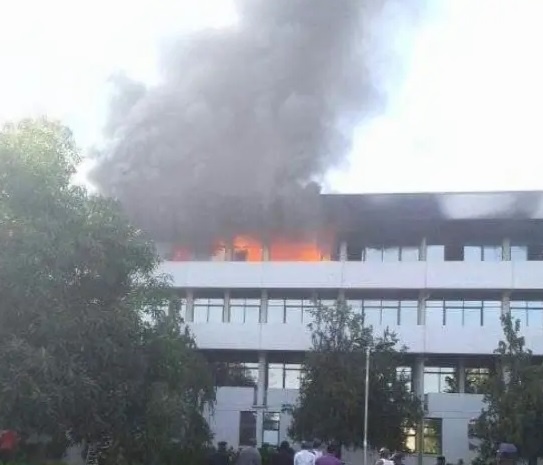Governor of Akwa Ibom State; Pastor Umo Eno has fingered failed politicians as the masterminds of the protest in the state at the weekend, over the installation of the President-General of the Supreme Council of Traditional Rulers in Uyo, the state capital.
In a statement sent to Inspiration 105.9 FM, the governor gave details of the processes that led to the installation of the President General, which he said was endorsed by all the traditional rulers from the 31 local government areas of the state.
The governor explained that he was not a part of the process as the arrangement was made even before he became the governor of the state, and as such should not be accused of any wrong doing.
Pst. Umo Eno warned that any attempt by politicians who had failed in their bid to win elections trying to whip up ethnic and parochial sentiments in a bid to destabilize the state would be rebuffed.
“There are several insinuations and misunderstanding that are being created in the minds of the people by those who failed at the elections and they think they can turn around and divide the state by whipping up ethnic sentiments. That is not going to be possible under this administration.
“Before I came into office, the paramount rulers had met among themselves. I was just a witness in that meeting. The 31 paramount rulers in the state, apart from those that were sick or deceased, met and agreed that to enable Akwa Ibom to play a role in the national traditional rulers council, there was a need to elevate the traditional rulers council to now be called the Supreme Traditional Rulers Council headed by the President-General that they had four years. I didn’t appoint him.
“And incidentally, the President-General is the Oku Ibom Ibibio. Along with him, they had a Vice President General 1 to be the Nkuku Annang, they chose Vice President General II to be the Ahta Oro.
“They said that would represent the Supreme Council of the Traditional Rulers for the purpose of playing at the national level. They now decided to rotate the chairmanship of the Traditional Rulers Council as it has always been. They did this without my interference.
“I’ll like any traditional ruler from any part of this state to stand up boldly and say he was not at that meeting. There was only one suggestion from the Paramount Ruler of Itu, who said there should be a slight modification and that slight modification was well taken, creating the two other offices (VPG 1 and VPGII).
“To make that possible, we needed to back it up by law. So, when I came into office, we had to consult. The bill was sent to the House of Assembly to make it a law. The bill went to the House of Assembly and I understand there was a public hearing.
There has been many reactions in Akwa Ibom state at what is perceived to be an attempt by the law to make the Ibibio appear as a superior tribe over the other tribes in the state who claim that a clause in the law allows only occupants of the seat of the Ibibio extraction to remain the president General not taking account the other main tribes.
Some other Historians have argued that the Longest serving Traditional ruler ought to have been given the title, while subsequent succession would follow the length of time spent on the throne by the traditional rulers.











